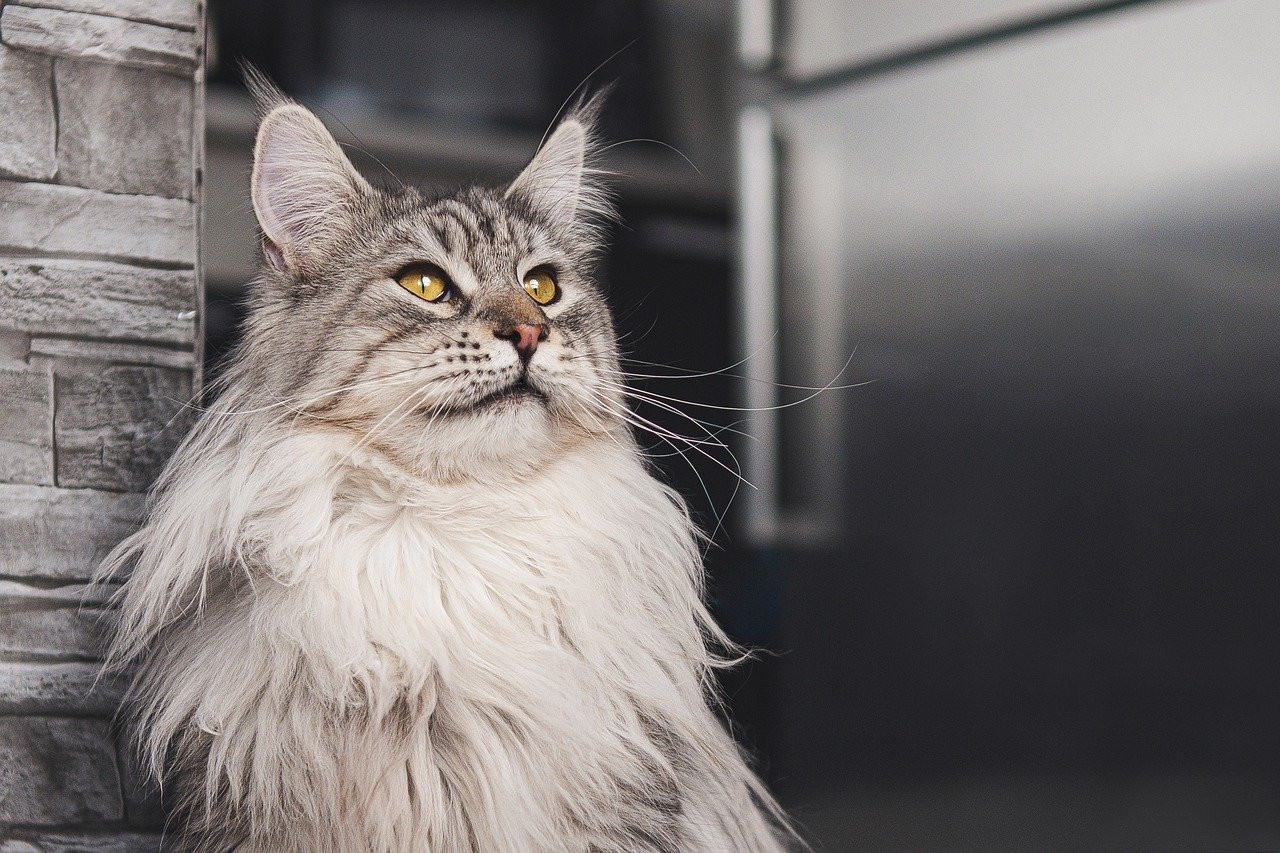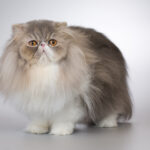For many, the allure of a cat’s gentle purr and playful antics is irresistible. Among the feline breeds, the Maine Coon stands out with its impressive size, majestic appearance, and friendly demeanor. However, for allergy sufferers, the dream of cat ownership can quickly turn into a sneezing, itchy-eyed reality. This leads to a common question: Are Maine Coon Cats Hypoallergenic?
Understanding cat allergies is the first step in answering this question. It’s a widespread misconception that cat hair is the culprit behind allergic reactions. In truth, the primary allergen is a protein known as Fel d 1. This protein is produced in a cat’s saliva, skin glands, and urine. When cats groom themselves, they deposit saliva onto their fur, which then dries and becomes airborne as dander. This dander, carrying the Fel d 1 protein, is what triggers allergic reactions in sensitive individuals.
While no cat breed is entirely hypoallergenic, some breeds produce less Fel d 1 protein than others, or have coat types that may trap dander more effectively. This brings us back to the Maine Coon. These gentle giants, known for their long, flowing coats, might seem like an unlikely candidate for allergy-friendly cats. Yet, surprisingly, Maine Coon cats are often cited as being more hypoallergenic compared to many other breeds.
This perception stems from a couple of factors. Firstly, anecdotal evidence suggests that some individuals with cat allergies report milder reactions to Maine Coons. Secondly, while scientific research is still ongoing and not definitive, there’s a belief that Maine Coons may produce slightly lower levels of Fel d 1 protein compared to some other breeds.
However, it’s crucial to manage expectations. It is inaccurate to label Maine Coon cats as truly hypoallergenic. They are not allergy-free. Individuals with severe cat allergies may still experience symptoms around Maine Coons. The long coat of a Maine Coon, while magnificent, can actually trap more dander, potentially leading to allergen build-up in the environment if not managed properly.
 A majestic Maine Coon cat with a bushy tail sitting regally.
A majestic Maine Coon cat with a bushy tail sitting regally.
To put it in perspective, let’s consider how Maine Coons compare to some other breeds known for being somewhat better for allergy sufferers, as mentioned in the original article:
- Siamese & Balinese: These breeds are known for producing less Fel d 1. Siamese have short coats and Balinese, despite being long-haired, are also considered relatively low-allergen. Maine Coons, while potentially producing less Fel d 1 than average cats, might still produce more than these breeds known for low Fel d 1 production.
- Sphynx: Hairless cats like Sphynx eliminate the fur aspect of dander dispersal, but they still produce Fel d 1 in saliva and skin secretions. Maine Coons have fur, which can trap dander but also requires regular grooming to manage.
- Bengal & Russian Blue: Bengals have short, sleek coats and are considered lower-shedding, potentially reducing dander dispersal. Russian Blues also have dense, short coats and are known for producing less Fel d 1. Maine Coons, with their long coats, require more diligent grooming compared to these breeds to manage allergens.
If you are an allergy sufferer considering a Maine Coon, here are essential steps to minimize potential reactions:
- Spend Time with Maine Coons: Before bringing a Maine Coon home, spend time with adult cats of this breed. Visit a breeder or a rescue organization to gauge your allergic reaction in a controlled environment. This is the most practical way to assess your personal sensitivity.
- Regular Grooming: Frequent grooming is paramount. Brushing your Maine Coon several times a week, ideally daily, will help remove loose fur and dander. Bathing your Maine Coon every few weeks can also significantly reduce allergens.
- Create an Allergy-Friendly Home:
- Designated Cat-Free Zones: Make your bedroom an allergy-free zone and prevent your Maine Coon from entering.
- HEPA Air Purifiers: Invest in high-quality air purifiers with HEPA filters to remove airborne allergens from your home.
- Hard Flooring: Opt for hardwood or tile flooring instead of carpets, which trap more dander. If you have carpets, vacuum them frequently with a HEPA filter vacuum cleaner.
- Washable Surfaces: Choose furniture that is easy to wipe down and wash pet bedding regularly.
- Allergy Management for Yourself: Consult with your doctor about allergy medications or immunotherapy (allergy shots) to manage your symptoms.
- Consider Allergen-Reducing Cat Food: Some specialized cat foods are formulated to reduce Fel d 1 levels in cat saliva. While not a complete solution, it can be a helpful additional measure.
Just like humans, cats can also experience allergies. While the original article touched upon CBD products for cats with allergies, always consult with your veterinarian before introducing any supplements, including CBD, to your cat’s diet, especially if they are already on other medications or have pre-existing health conditions.
In conclusion, while Maine Coon cats are often perceived as being more hypoallergenic than some breeds, it is crucial to understand that they are not truly hypoallergenic. Individuals with allergies may still experience reactions. However, with proactive allergy management strategies, a dedicated allergy sufferer might still be able to welcome a Maine Coon into their life. Thorough research, realistic expectations, and commitment to managing allergens are key to making cat ownership a harmonious experience for both you and your magnificent Maine Coon companion.


